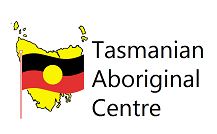
TAC represents the political and community development aspirations of the Tasmanian Aboriginal community. The TAC was developed in the early 1970s and has been funded by the federal government since 1973.
The TAC is an Aboriginal community organisation developed in the early 1970s and funded by the federal government since 1973. It was incorporated as the Aboriginal Information Service in November 1973 and changed its name to Tasmanian Aboriginal Centre (TAC) in August 1977, and officially to Tasmanian Aboriginal Corporation in 2016, but still trading as the Tasmanian Aboriginal Centre.
Current Constitution: Tasmanian Aboriginal Corporation Rule Book (2016)
TAC represents the political and community development aspirations of the Tasmanian Aboriginal community. For an account of its early development see here and here.
Some of its main achievements include:
- Negotiation of Aboriginal land returns in 1995, 1999, 2005
- Return of ancestral remains from overseas and Australian institutions
- Legislative recognition of Aboriginal cultural fishing rights
- Apology to the Tasmanian Stolen Generations
- Financial compensation to members of the Stolen Generations
- Negotiation of land purchases for community ownership
- Establishment of a range of Aboriginal community services
- Retrieval and revival of Tasmanian Aboriginal language
- Improved accountability of Aboriginal heritage protection
- Establishment of the only Aboriginal Registered Training Organisation in Tasmania
- Establishment of Tasmanian government services to members of the Aboriginal community
In 2014 we provide the following services:
- Community advocacy
- Cultural heritage programs including land based activities and camps
- Emotional and social wellbeing programs
- Exercise and nutrition programs
- Housing advocacy and home buyers assistance
- Land management programs on returned lands
- Law reform and community legal education
- Legal Service – see here
- Music and cultural festivals
- Nutrition advice
- Palawa kani language retrieval and revival program
- Prison visiting
- Publications and publication support
- Registered training for Aboriginal Health Workers and Cultural Heritage Workers
- Youth diversion program
